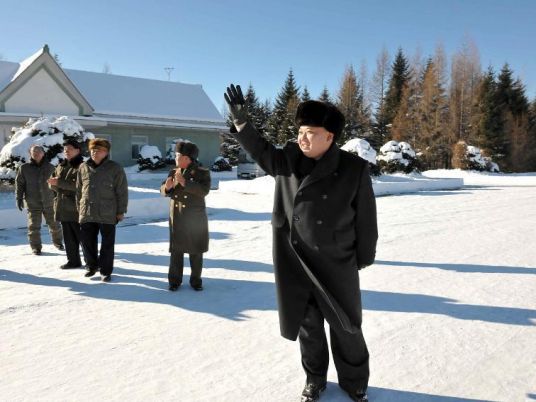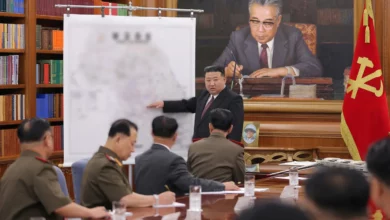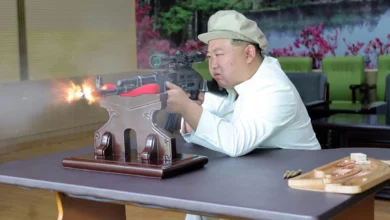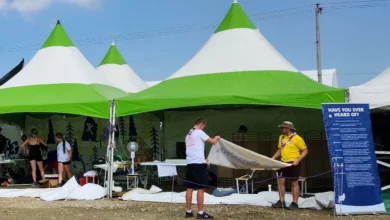
North and South Korean troops briefly exchanged fire Sunday in the latest in a series of minor border skirmishes that have raised military tensions on the divided peninsula.
The South's defence ministry said the exchange inside the Demilitarised Zone (DMZ) that separates the two rivals lasted only 10 minutes.
There were no reported casualties.
Despite its name, the DMZ is probably the world's most heavily militarised border, bristling with watchtowers and landmines.
Four kilometres wide, it straddles the Military Demarcation Line (MDL) which marks the actual frontier.
A defence ministry official said a South Korean border patrol had spotted North Korean troops approaching close to the MDL.
"Verbal warnings were issued by loudspeaker and then warning shots were fired," the official said.
"The North Koreans then opened fire on our troops, who returned fire," he said.
According to an official with the Joint Chiefs of Staff, South Korean troops had issued verbal warnings or fired warning shots on two other occasions along the MDL in the past 24 hours.
There have been a series of border exchanges in recent weeks that have raised temperatures along the perennially volatile border.
On 10 October the two sides traded heavy machine-gun fire after the North's military tried to shoot down some leaflet-laden balloons launched by South Korean anti-Pyongyang activists.
A few days before that, North and South Korean naval patrol boats had briefly exchanged warning fire near their disputed Yellow Sea border, which has been the site of numerous clashes in the past.
There were no casualties reported in either incident.
Last Wednesday, at the North's instigation, the two Koreas held high-level military talks to address the tensions but they ended without agreement.
The North later accused the South of arrogance and of seeking to undermine its peace overtures.
The border incidents have jeopardised an agreement — reached during a surprise visit to the South by a top-ranking North delegation earlier this month — to resume high-level talks suspended since February.
Although the incidents have been relatively minor, Yang Moo-Jin, a professor at Seoul's University of North Korean Studies, warned that even the smallest skirmish carried the risk of escalation.
"The nerves of the soldiers on both sides get frayed at moments like this, and that increases the likelihood of an accidental clash that could spiral out of control," Yang said.
North Korea is particularly irritated by the anti-Pyongyang leaflets which South Korean activists regularly float over the border — suspended under gas-filled balloons.
It has repeatedly called on the South to ban the balloon launches, but Seoul insists it has no legal grounds for doing so.
Because the 1950-53 Korean conflict ended with a ceasefire rather than a treaty, the two Koreas remain technically at war.




